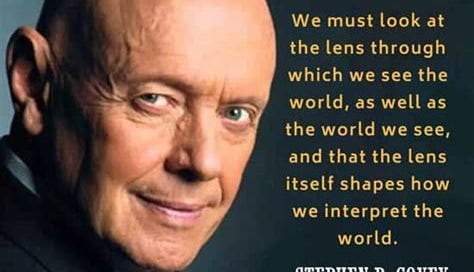In school, History was my least favourite class.
I can remember the feeling of dread as I entered the classroom knowing that I must endure another 40 minutes of Mr. Etchels and his deadpan droning on about past wars and long-dead public figures. None of it felt even remotely relevent while the cultural revolution of the 1960s raged all around us. Years later, at a school reunion, a much older Stan Etchels confessed to me that, while teaching, he had been counting the days until he could retire on a teacher’s pension. I guess he bored himself as much as he bored his students.
When I left grade 13 in 1969, I expected to never read History again. Little did I know that History would become of increasing interest to me decades later. I have the Internet to thank for this happy state. Professor Google is a great and dedicated teacher who provides the resources, convenience and freedom for me to follow my whims and curiousity about events and people, big and small, famous and obscure.
As an anti-establishment, rebellious and yet somewhat introverted teen, I also had no clue how big a role people would play a in my life. Employed as a professional IT recruiter for 36 years, I interviewed over 10,000 job candidates and interacted with thousands of managers across hundreds of organizations in virtually all economic sectors. Every one of those people with whom I interacted was unique. Some were friendly, some frosty, each interesting in his or her own way.
Outside of work, I met and enjoyed the company of others largely through sports (hockey, nordic skiing, running, golf) and politics (mainly the Libertarian provincial and federal parties). My political contacts is where I met people who were the most intellectually engaged. They offered the most stimulating exchanges of ideas, information and opinions.
History offers endless rabbit holes.
How many of the published stories in history are primarily fiction? A quiet voice says: “To the victor goes the spoils” to remind me that recorded history is rarely, if ever, told by the vanquished. Every story comes from the pen of one writer who has only one life lens through which to observe and experience “reality”. His or her “reality” occurs wholly at an individual level and each person who reads or hears the story does so through the perception filters of his or her life lens.
Into to unknown…
The other side of history is the future which may be thought of “the people and events yet to be revealed”.
The story of Father Christmas is an interesting one. According to folklore, a man by the name of Nickolas lived in Myrna (a settlement on the coast of modern-day Turkey) during the 3rd century AD. He is where the story begins and it is not entirely clear about the details of this genesis. Over the ensuing decades, many layers to the story were compounded to eventually create our contemporary myth of Santa Claus in North America.
For example, Nicholas was canonized centuries later by a Catholic pope to be heralded as Saint Nicholas and to craft more dimensions to his story to shape future religious traditions. Finland claimed a mountain range within its borders to be the location of the hidden grotto where St. Nicholas, later Santa Claus, lived with his reindeer and laboured year-round in his workshop.
The elves were a Germanic addition to the tale according to a story on the Internet. The Vikings were alleged to have brought the Scandinavian story of Saint Nicholas to England which subsequently melded with its religious traditions. America was later settled by English, French and Spanish immigrants who imported their Christian traditions and have kept the rich history of Christas alive to this day.
Enter American materialism
Whether you like Capitalism, or not, the lure of profits infected the soul of Chistmas for many. Gift-giving turned Christmas into the most profitable commercial season of the year. For many decades, “cha-ching” chirped steadily from every retail cash register while Bing Crosby crooned Christmas carols over hidden loudspeakers to inspire the gift-buying mood in shoppers. Over time, the traditional retail sounds of Christmas faded as digital technology and Amazon replaced them quienter clicks on a keyboard or short verbal instructions to Siri or Alexa.
What will the future story of Chrismas be like?
By the year 2100, will our descendants recall the date when Christas was officially cancelled? Will the threat of Climate Change be the reason that policy-makers restricted travel and forced factories to close because they could not meet Net Zero greenhouse gas emissions standards? Will folklore spread gossip of friends and family hosting “underground” Christmas festivities undetected by state-operated digital surveilance networks?
Dear Santa. For Christmas, I would like to know how people living in 2100 will recount the tales of Christas past. In that future era, how will story-tellers portray the major events and primary characters? Who will play The Grinch and who The Saviour in the the History of Christmas 2100?
To get my wish, should I bribe Jolly Old Saint Nick with a snack of milk and cookies?






As a student, I too was less than enthused about history. Memorizing names, dates, treaties, etc seemed somewhat irrelevant to me. Today, I wonder where all of the history buffs and scholars are, as we seem to be heading down some dark roads that are eerily similar to the past.
I believe that it was Voltaire who first said that history is written by the victors. After recently viewing a couple of poignant documentaries covering two recent historic events, I am starting to believe that history is being rewritten as it unfolds before us.
"Peace, War and 9/11" recounts the research of Canadian scholar Graeme MacQueen (who passed away earlier this year) into the attack on the Twin Towers, and how narrative is used to manipulate citizens into supporting war.
Another blockbuster is "The Fall of Minneapolis" by Liz Collin, which investigates the narrative surrounding the death of George Floyd, the ensuing media-fuelled rioting, and the miscarriage of justice in the sentencing of four police officers, including Derek Chauvin.
After watching these documentaries on events that many of us believed to have witnessed with our own eyes (via television and the internet), one cannot help but wonder how much of our history can be trusted.
I find ChatGPT and Professor Google so far indoctrinated sources... you're losing me to their significance.
Who are our real enemies?
https://rumble.com/v3wk24d-canadas-forgotten-battle-for-development.html?start=3485